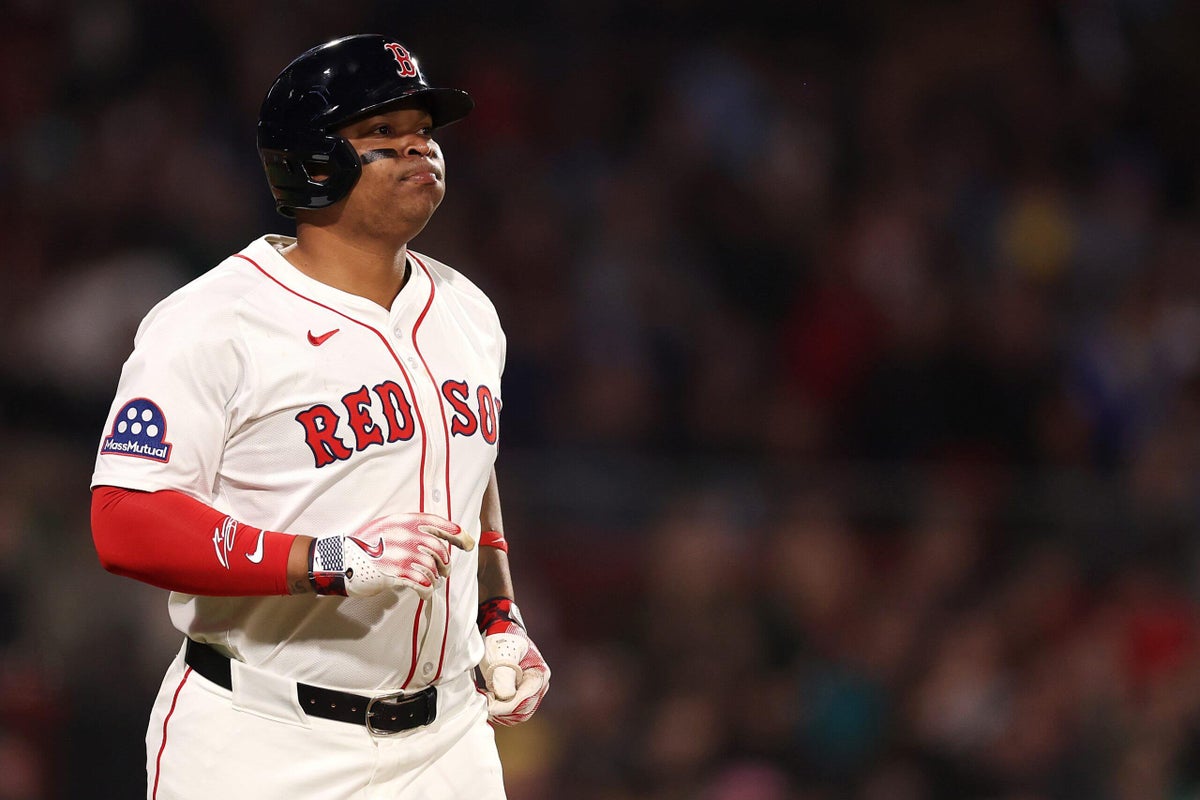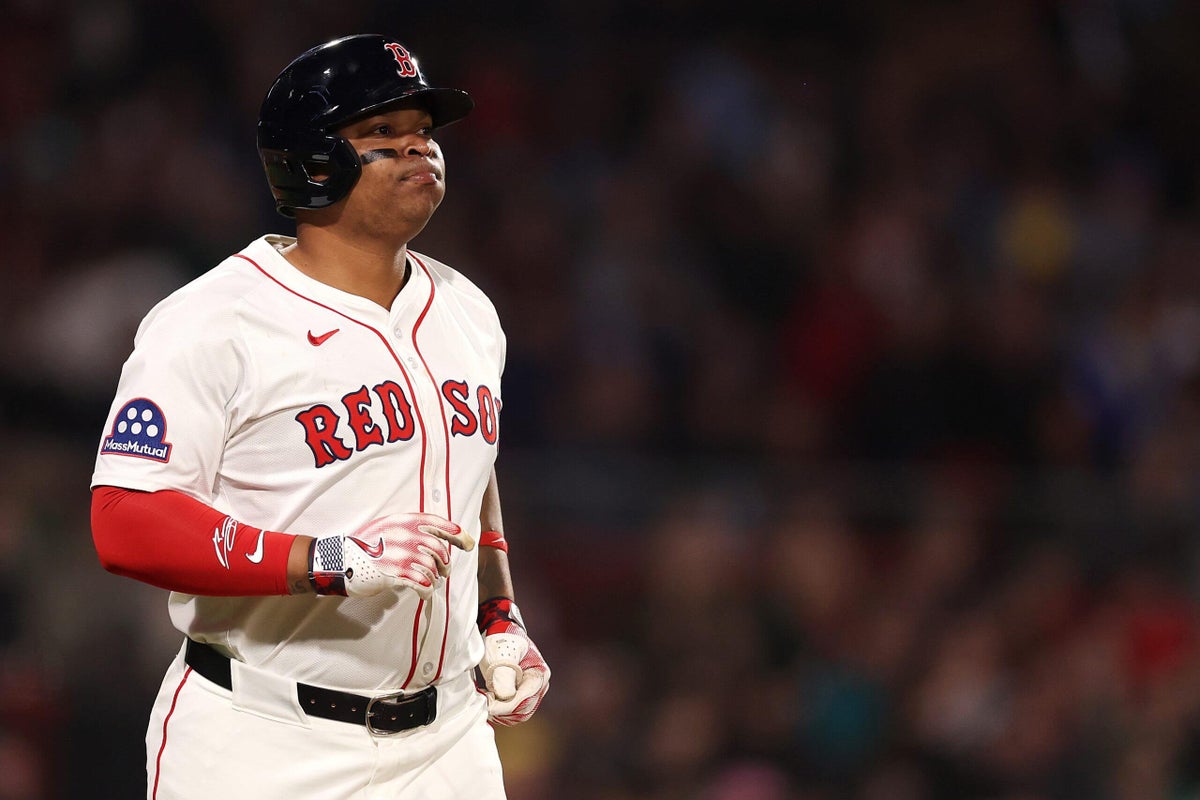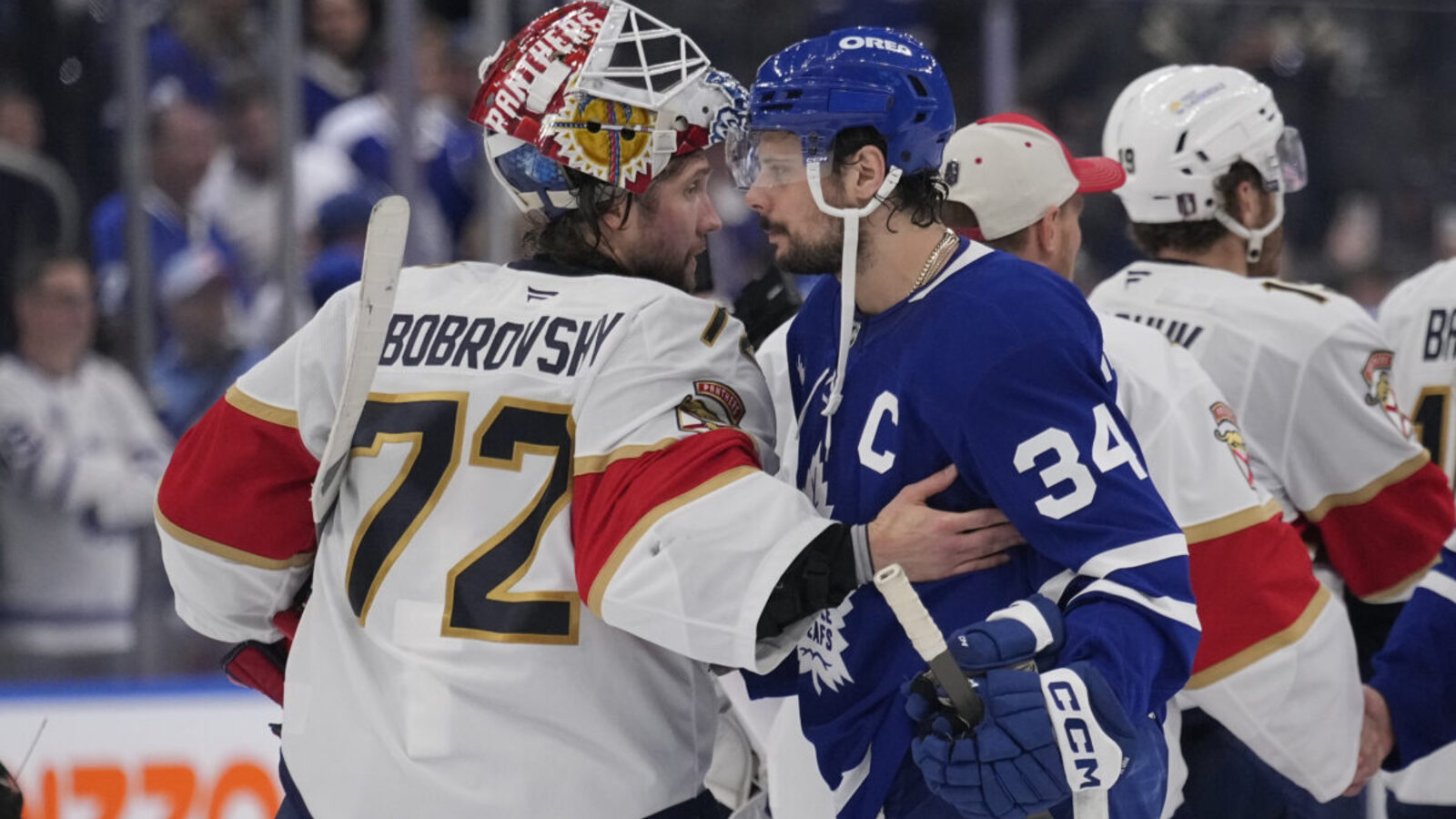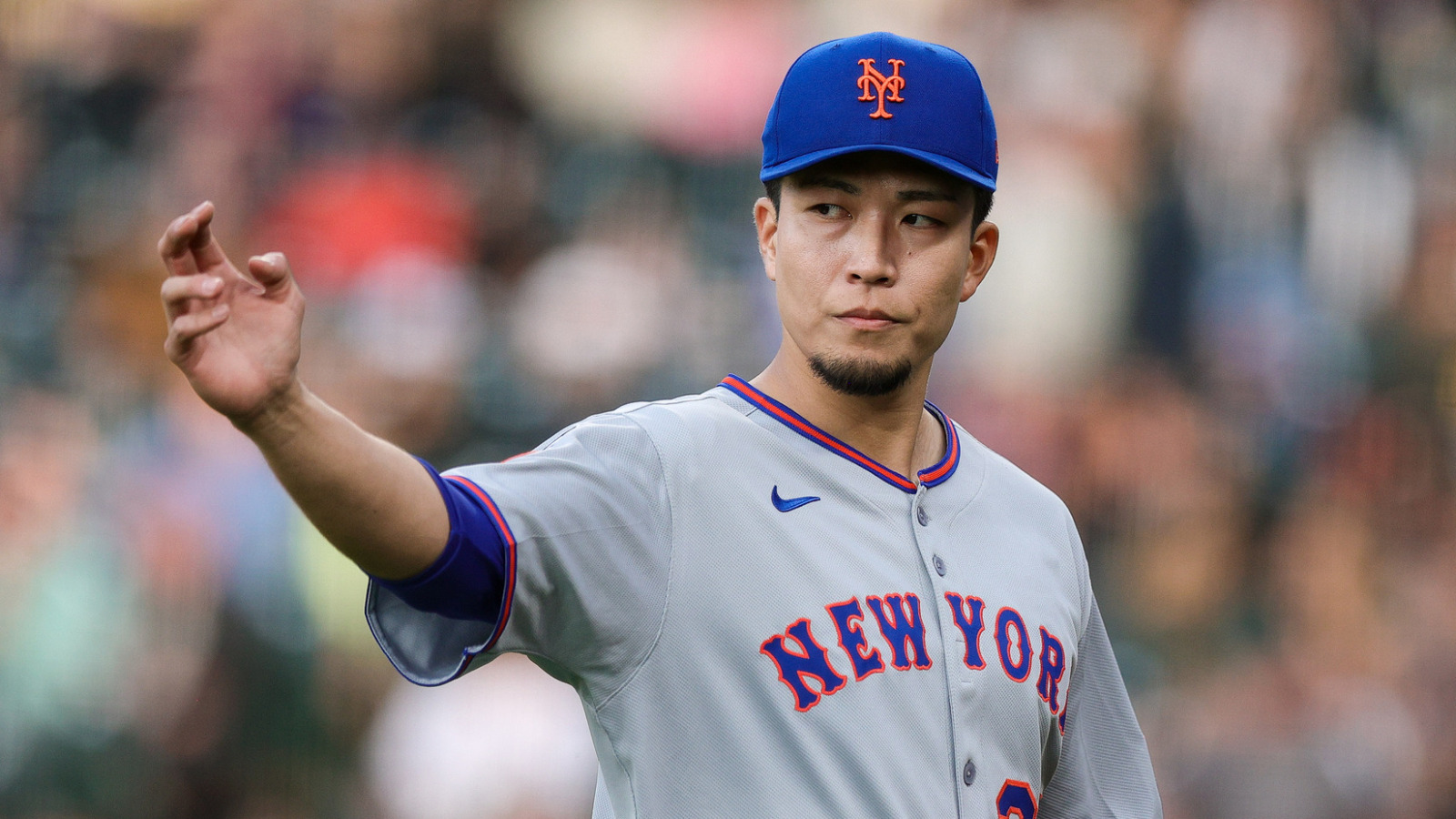
Netflix was a year off. This Boston Red Sox season is one that deserves a documentary.
Boston shocked the sport Sunday night by trading franchise cornerstone Rafael Devers to the San Francisco Giants after months of public tension between the Sox front office and its star. The return – pitchers Kyle Harrison and Jordan Hicks, outfield prospect James Tibbs III and pitching prospect Jose Bello – seems secondary to the roughly $255 million of Devers’ contract the Giants fully absorbed.
Advertisement
The timing of the move, which multiple sources told The Athletic required Devers to deplane the team’s West Coast-bound charter, was a stunner around the industry, even among those who weren’t surprised Devers ultimately moved.
“I’m shocked. I thought it would be this offseason,” said one National League exec. “Or even at the deadline. Not in mid-June on the heels of a Yankees sweep.”
“We got our Luka Dončić trade!” said one American League evaluator, referring to the three-team NBA blockbuster in February. “It should have happened in spring training, but no one saw it coming now. Our group chat was blowing up.”
He wasn’t alone. The entire baseball world was buzzing once the news broke, the shock of the trade soon dissipating into pockets of people analyzing what this meant for teams and the industry at large. The Athletic polled more than two dozen people –managers, coaches, front office executives, scouts and agents – and opinions varied widely.
Front offices seem to almost universally agree that the Devers trade was necessary for Boston’s chief baseball officer Craig Breslow, who signed Alex Bregman to play third base this winter, a move that fractured his relationship with Devers beyond repair. Devers, who begrudgingly accepted the move to designated hitter, felt disrespected and was unwilling to move to first base after Triston Casas’ season-ending injury.
It was, as one longtime executive put it succinctly, a “master class on miscommunication,” with both parties bearing some fault.
“It took some real courage for Boston to do this, but I actually think it is the right long-term decision for the franchise,” said one NL exec of the trade. “Devers had become an imperfect fit on their roster, and the relationship clearly seems to have soured. Freeing up $250 million AND getting some nice young talent in return is a great deal for them in a vacuum.”
Advertisement
Said another NL executive: “Look, fans are going to kill them, the media is going to kill them, but if you take a step back and really think about what (the Red Sox) did, it puts a lot of pressure on their young players now, but in a few years I think this trade will be lauded.”
It was easy to see how both parties got there, an AL executive surmised. Boston wanted to get rid of its unhappy star while San Francisco badly needed a middle-of-the-order bat and had struck out several times in free agency. For the Giants, the deal offers them a fixed cost versus the uncertainty of what this winter’s market may look like. While some in the industry applauded Giants president of baseball operations Buster Posey’s aggressiveness, others pointed out several contracts, including Devers, Matt Chapman (six years, $151 million) and Willy Adames (seven years, $182 million), that may not age well for San Francisco.
“The ‘Hey, since we can’t get a good deal on a free agent, let’s get a questionable one so that we have one’ logic is suspect to me,” said an AL executive about the Giants. “(The) Red Sox unloaded an arguably underwater contract of a disgruntled DH for a whole lot of value. They did good. Really good. I am not happy.”
Neither is a faction of the baseball world that isn’t as beholden to budget lines and long-term fiscal responsibility.
“Is it possible to not like this for either side?” added an AL evaluator. “San Francisco is taking on an awful contract that will age poorly, while Boston has to move on from a homegrown star because they mangled the relationship.”
The Red Sox, who traded away Mookie Betts for a pittance and failed to re-sign infielder Xander Bogaerts three offseasons later, have been operating like a small market club for years. Multiple people were glad the Giants, who would be an NL wild card if the season ended today, were at least showing some urgency.
Advertisement
“Buster is in it to win it. He said he was getting a bat, (and) he did,” said one AL scout. “Boston did the best they could. But the fact that they are in this position is mind-boggling. I hope they fall hard. A club like that should not be in the business of trading stars on a habitual level. Do they just love drama?”
Added an NL manager: “It’s stupid. Financial flexibility is great for a small-market team like Tampa Bay or Cleveland. But you’re the Boston Red Sox, and it shouldn’t be a big priority. You should be flexing your financial might and trying to win the World Series. You want to move Devers because he starts to suck, OK. But he’s a top-10 hitter.”
Teams don’t often trade players of Devers’ caliber, and they definitely don’t do so in a season where they are still, in theory, competing. The Red Sox had won five in a row and were a half-game out in the wild-card race at the time of the trade.
“My first thought was (that) they’ve given up on the season,” said one veteran agent who was equally mystified about Devers’ contract failing to include a no-trade provision. “On a deal like this and a player like (Devers), you have max leverage. You are going to get almost anything you want. The money is the fight, everything else these teams throw in. For him to not get any kind of no-trade is embarrassing.”
“Even if everything is great at the time, you add a no-trade in there because of exactly what happened to Devers,” said another agent. “GMs change over, and whatever (former Red Sox GM) Chaim Bloom promised, whether it was playing third base or staying in a Red Sox uniform forever, holds no weight.”
Devers, despite being upset over his treatment, never asked the Red Sox to trade him. Several coaches and scouts The Athletic spoke with believe it will be tough even for a veteran manager like Alex Cora to sell this trade to the 2025 team as anything but a financial decision, and one that won’t make this year’s group any better. Devers, sources say, was popular in the clubhouse. But the situation with Breslow and ownership appeared unfixable and potentially a risk if Devers, who soured on the front office, imprinted that mentality on the team’s younger players.
For all the talk about Devers’ contract not aging well, the Blue Jays gave Vladimir Guerrero, another future full-time DH, $500 million. While Devers is two years older, their numbers are comparable.
Advertisement
“The so-so return speaks to how badly they wanted to move him,” said an NL exec.
“At the end of the day, no one wants to hear about money saved. What will they do with Devers’ money?” said one of the AL execs. “That’s what will decide what this trade was.”
Said one of the NL execs: “I think it will shift the focus more towards ownership. I don’t doubt that (Boston) will reinvest the money in other areas to support the new young core, but that will take some time and we’ll see how noisy things get in Boston in the meantime… especially if they miss the playoffs this year.
“If they can navigate the short-term noise, I think they will be very glad that they did this in the end.”
Will Sammon and Katie Woo contributed reporting.
(Top photo of Rafael Devers: Maddie Meyer / Getty Images)


